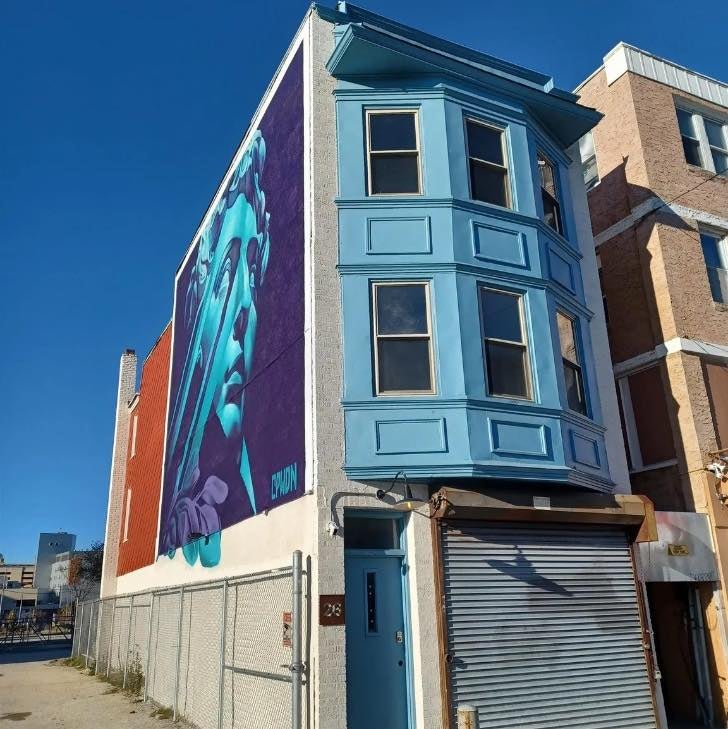How state and local organizations are stepping up to combat the problem
Since launching its Midtown Community Development Corporation, or CDC, in 2021, AtlantiCare has moved to address housing insecurity. In April 2024, the CDC received $1 million in Neighborhood Revitalization Tax Credit funding from the Department of Community Affairs for housing rehabilitation, facade improvements, clean‑and‑safe initiatives, and community programs for the Midtown neighborhood.
The CDC is focusing on rehabbing vacant homes and supporting low-and moderate-income homeowners with critical repairs. The goal is long-term stability through homeownership and neighborhood revitalization.
“Our focus continues to be on where we can lead, where we can partner and how we build durable impact over time,” Kiley said.
Officials said they have big plans for the future, including pursuing partnerships that could bring housing investments to the region tied to the development of a medical school in Atlantic City with Drexel University College of Medicine, and collaborations with developers specializing in health care housing that offer different financing options.
Atlantic City has also taken steps to reduce the problem, said Jarrod Barnes, director of Health and Human Services in Atlantic City.
This year, Atlantic City Housing Authority is working to administer the Section 8 voucher program under New Jersey Department of Community Affairs guidelines. The program pays for housing for a year to help people find jobs while providing resources like financial education. About 50 people have been approved for vouchers this year. There are no more vouchers remaining at this time. The city also has programs to help prevent evictions by subsidizing missed rent due to unforeseen issues.
“We are out in the community hearing their needs and trying to provide assistance,” Barnes said. “This isn’t just an Atlantic City issue. We need municipalities from all around the area to assist because a lot of those who are homeless here are not from Atlantic City.”
At the state level, under NJ FamilyCare’s Section 1115 waiver, New Jersey’s Medicaid program can reimburse health systems for addressing health-related social needs, or HRSNs, including food access and housing. The waiver, which extends through 2028, expands managed care to support services like long-term housing assistance and behavioral health.
At AtlantiCare, this change is already visible in clinical workflows, officials said. At every point of entry, whether it’s primary care, behavioral health or discharge planning, patients are screened for housing insecurity. If they need help, social workers, financial counselors and housing navigators step in immediately to assist with shelter placements, documentation, or voucher applications.
This year, AtlantiCare is adding Medicaid-funded housing counselors directly into care teams to connect patients with housing while still inside the clinical setting.
Cooper University Health Care in Camden has similarly integrated housing support into its patient services, particularly for individuals dealing with addiction, pregnancy or chronic health issues, officials said.
At Cooper’s Center for Healing, patients are connected with housing vouchers, legal documentation assistance, and transitional shelter options. Pregnant women in recovery, for instance, are referred to Volunteers of America Delaware Valley for housing support that’s funded by state HRSN grants.
Cooper also operates a Medical-Legal Partnership with the Camden Coalition, helping patients navigate eviction proceedings, unsafe housing conditions and benefits applications.
 26 S. Kentucky Ave., AtlantiCare’s current project, which will be two 2-bedroom units with a commercial storefront. (Courtesy of AtlantiCare)
26 S. Kentucky Ave., AtlantiCare’s current project, which will be two 2-bedroom units with a commercial storefront. (Courtesy of AtlantiCare)
Some counties are setting a goal to end homelessness
In 2024, Camden County rolled out a plan to end chronic homelessness by 2030. The goal is to reach “functional zero,” meaning the number of people experiencing homelessness won’t outpace how many are being housed each month. The strategy includes prevention, rapid rehousing, coordinated care, policy changes, and strong partnerships with Cooper, the Camden Coalition, and other local providers.
As all these efforts expand, the connection between stable housing and health outcomes is becoming clearer, officials said. And in places like Atlantic City and Camden, where housing challenges are deeply intertwined with economic and racial disparities, health systems are becoming unexpected but essential players in the push for community stability.
“When housing systems fail, health care systems absorb the fallout,” Kiley added. “But with the right resources and partnerships, we can shift from being the last line of defense to the first opportunity for prevention.”
WHYY News is partnering with independent journalists across New Jersey to spotlight the people, communities, cultures and distinctive places that shape the Garden State. This work is made possible with support from the Geraldine R. Dodge Foundation.

